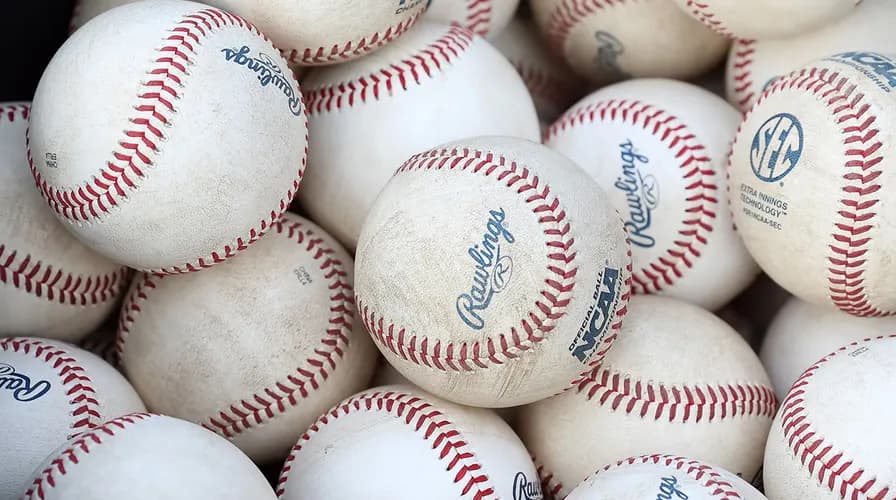Baseball umpires are colloquially known as “Blue,” a term deeply rooted in the sport’s history and culture. This article explores the origins and evolution of this distinctive nickname, tracing its historical and stylistic origins.
Historical Theories Behind the Moniker “Blue”
The nickname “Blue” for umpires has uncertain origins, with various theories suggesting links to Puritan blue laws, symbols of authority, or Civil War associations. The most prevalent theory ties the term to the traditional blue uniforms worn by umpires in the late 19th century, distinguishing them from players and symbolizing their role as impartial enforcers of the game’s rules.
The Evolution of Umpire Uniforms in Baseball
Umpire uniforms have undergone significant transformations, with blue remaining a consistent element. Initially donning suits and ties, umpires later adopted blue woolen uniforms akin to those of police officers, further reinforcing their authoritative presence on the field. Modern umpire attire has evolved to incorporate functional and stylish designs, yet the legacy of the blue uniform persists in the sport’s lexicon and culture.
“Blue” in Baseball Culture and Pop Media
The term “Blue” has permeated popular culture, appearing in various forms of media including books, movies, television shows, and video games. These references often underscore the umpire’s role as an authoritative and impartial figure, reinforcing the cultural significance of the moniker in the context of baseball.
Variations and Other Terms for Umpires
While “Blue” is a prevalent term in baseball, other sports and regions use different nomenclatures for umpires. These variations reflect the diverse cultural and linguistic traditions across sports and geographic areas, illustrating the unique ways in which officials are regarded and referred to in different contexts.
Comparative Table: Evolution of Umpire Nicknames in Different Sports
To enhance the understanding of umpire nicknames across various sports, a unique comparative table is included. This table contrasts the terms used for umpires in baseball with those in other sports, highlighting cultural and linguistic differences.
| Sport | Baseball | Basketball | Football | Soccer | Cricket | Rugby |
|---|---|---|---|---|---|---|
| Nickname | Blue | Ref | Official | Referee | Umpie | Ref |
| Origin | Blue uniforms | Short for referee | Authority | Traditional term | Informal term | Short for referee |
| Cultural Significance | Authority, tradition | Game management | Rule enforcement | Global standard | Informal respect | Game management |
| Historical Context | Late 19th century | Developed with sport | Evolved with sport | International standard | Traditional term | Developed with sp |
Understanding the Role of “Blue” in Baseball
- Symbol of Authority: The term “Blue” emphasizes the umpire’s role as an authoritative figure on the field;
- Historical Significance: Originating from the blue uniforms worn in the late 19th century, “Blue” reflects baseball’s rich history;
- Cultural Integration: “Blue” has transcended beyond the field, becoming a part of popular culture through media and literature;
- Evolution of Uniforms: Although modern umpire uniforms may vary, the term “Blue” continues to be used, demonstrating its enduring legacy;
- Diverse Interpretations: The term can be used both respectfully and critically, depending on the context and tone;
- Comparison with Other Sports: While “Blue” is unique to baseball, other sports have their distinctive nicknames for officials, reflecting each sport’s culture and history.
The Significance of Gum Chewing in Baseball: Tradition and Benefits
Incorporating a unique section on why baseball players chew gum provides a holistic perspective on this common practice and its relevance to the theme of umpires being called “Blue.” Chewing gum in baseball is a tradition that spans several decades, offering various benefits to players and contributing to the sport’s unique culture.
Baseball players chew gum for several reasons:
- Oral Hygiene and Comfort: Playing on dusty fields can lead to discomfort from dirt and sand in the mouth. Chewing gum helps players cleanse their mouths, keeping them comfortable during the game;
- Stress Relief and Concentration: The act of chewing gum can reduce stress and anxiety, which is particularly beneficial in a high-pressure sport like baseball. It also helps players maintain focus and concentration during crucial moments;
- Alternative to Tobacco: Historically, chewing tobacco was common in baseball. As awareness of tobacco’s health risks grew, many players switched to gum as a healthier alternative;
- Psychological and Superstitious Benefits: Some players chew gum as part of their ritual or superstition, believing it enhances their performance. This practice is deeply ingrained in the sport’s culture;
- Social and Cultural Aspect: Gum chewing is a visible and familiar aspect of baseball culture. It’s a part of the relaxed and approachable image often associated with baseball players.
Understanding why players chew gum sheds light on the sport’s traditions and player behaviors, paralleling the cultural significance of umpires being referred to as “Blue.” These practices, whether it’s chewing gum or using specific nicknames, enrich the culture of baseball, adding layers of tradition and meaning to the game.
Video Guide
To answer all your questions, we have prepared a video for you. Enjoy watching it!
Conclusion
The nickname “Blue” for baseball umpires symbolizes a rich history and tradition within the sport. From its uncertain origins to its integration into popular culture, the term reflects the crucial role umpires play in maintaining the integrity and spirit of baseball. Understanding the significance of “Blue” offers a deeper appreciation for the sport’s heritage and the timeless traditions that continue to define it.




